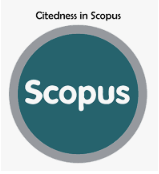PUBLICATION ETHICS
Journal of Education and Learning Sciences is committed to upholding the highest standards of publication ethics and integrity. All parties involved in the publication process, including authors, editors, peer reviewers, and publishers, are expected to adhere to ethical guidelines to ensure the quality and credibility of scholarly work.
1. Responsibilities of Authors
- Ensure that the submitted manuscript is original, has not been published elsewhere, and is not under review by another journal.
- Properly cite and reference all sources to avoid plagiarism.
- Clearly disclose any conflicts of interest that may influence the research.
- Accurately report research findings without fabrication, falsification, or manipulation of data.
- Obtain appropriate permissions for any copyrighted materials used.
- Properly acknowledge all contributors to the research.
- Promptly notify the editor if significant errors are discovered after publication and cooperate in corrections or retractions.
2. Responsibilities of Editors
- Make fair and unbiased editorial decisions based on the manuscript's academic merit, relevance, and originality.
- Maintain confidentiality of submitted manuscripts and ensure a rigorous, double-blind peer review process.
- Ensure that manuscripts are reviewed by qualified and competent reviewers.
- Take appropriate action in cases of suspected misconduct, including plagiarism, falsification, or unethical research practices.
- Avoid conflicts of interest with authors, reviewers, or editorial board members.
3. Responsibilities of Reviewers
- Conduct objective, fair, and timely peer reviews with constructive feedback.
- Maintain confidentiality and not disclose or use any information from the manuscript for personal gain.
- Identify relevant published work that has not been cited by the authors.
- Avoid any conflict of interest with the authors or institutions associated with the manuscript.
4. Responsibilities of the Publisher
- Ensure the journal adheres to ethical publishing policies and industry standards.
- Provide support to editors, authors, and reviewers in handling ethical issues.
- Facilitate corrections, retractions, or expressions of concern when necessary.
- Uphold transparency in the publishing process and protect intellectual property rights.
5. Ethical Issues and Misconduct Handling
- The journal takes allegations of research misconduct seriously, including plagiarism, falsification, and redundant publication.
- If unethical behavior is detected, appropriate actions will be taken, including retraction of articles, notification to authors’ institutions, and other corrective measures.
The Journal of Education and Learning Sciences follows the ethical guidelines of COPE (Committee on Publication Ethics) to maintain the integrity of scholarly publishing.















